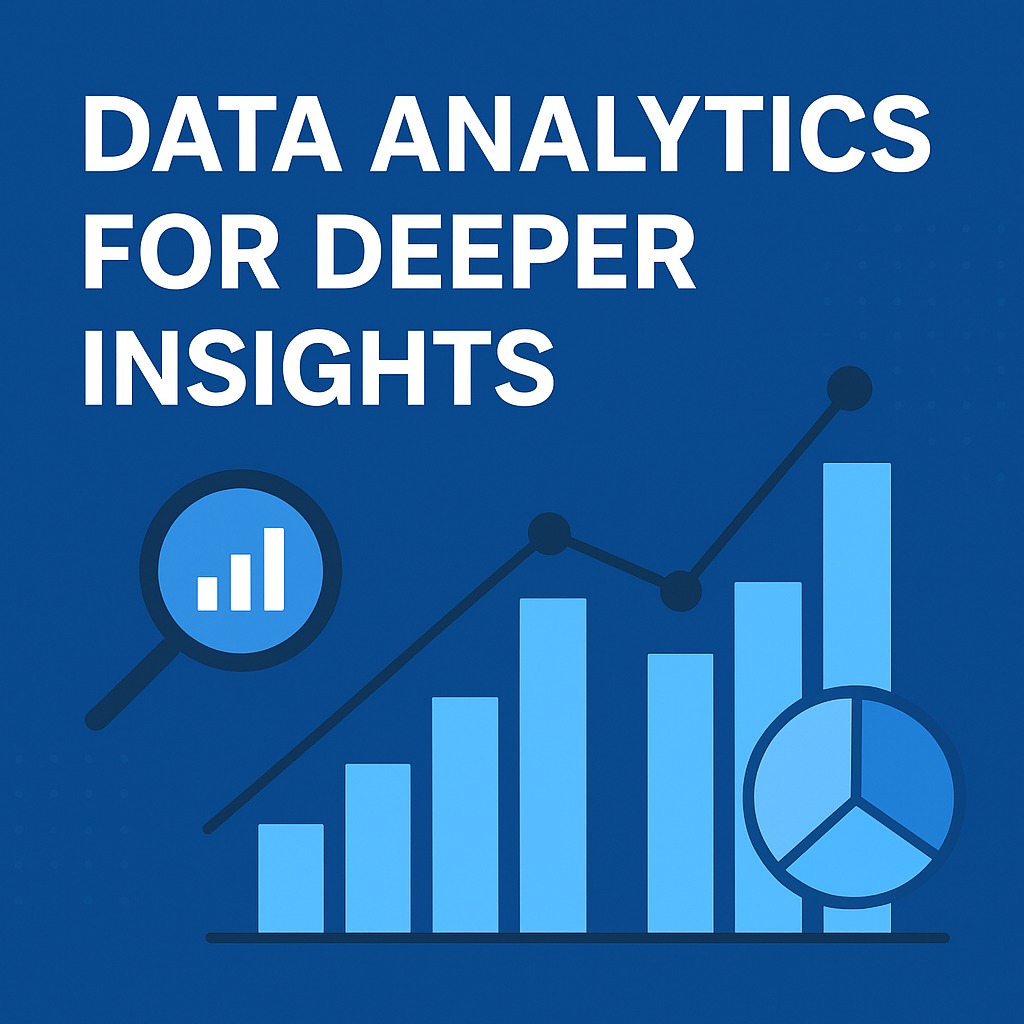
Data Analytics for Deeper Insights: Transforming the Future of Auditing
In today’s fast-paced business environment, organizations generate massive volumes of data every single day. From financial transactions and supply chain records to customer interactions and employee workflows, data has become the lifeblood of modern businesses. But having data alone is not enough what truly matters is how effectively it is analyzed and transformed into actionable insights.
This is where Data Analytics in Auditing comes into play. By leveraging powerful analytical tools, auditors can move beyond traditional sampling methods to uncover hidden patterns, detect anomalies, and provide decision-makers with deeper, more strategic insights.
Moving Beyond Traditional Auditing
Traditional audits often relied on reviewing limited samples of transactions due to time and resource constraints. While effective, this method sometimes left room for undetected risks. With data analytics, auditors now have the ability to:
- Analyze entire datasets instead of just samples.
- Identify anomalies and irregularities in real time.
- Spot patterns and trends that may indicate fraud, inefficiency, or emerging risks.
This shift allows audits to become more comprehensive, efficient, and predictive rather than reactive.
How Data Analytics Adds Value in Auditing
- Risk Identification: Advanced analytics tools can highlight unusual activity or high-risk areas faster than manual review.
- Fraud Detection: Continuous monitoring of transactions helps in identifying red flags such as duplicate payments or unusual vendor activity.
- Efficiency Improvement: Automating repetitive tasks frees up auditors to focus on deeper analysis and strategic recommendations.
- Predictive Insights: Analytics doesn’t just review the past it provides forward-looking insights that help organizations prepare for future challenges.
Why Businesses Are Embracing It
In an era of digital transformation, businesses expect auditors to be more than compliance checkers. They want partners who can interpret data, highlight risks, and suggest improvements. Data analytics empowers auditors to provide exactly those valuable insights that go beyond the numbers and support better business decisions.
The Future of Audit with Data Analytics
As technologies like Artificial Intelligence (AI) and Machine Learning (ML) integrate with data analytics, the future of auditing looks more proactive and intelligent. Soon, auditors will be able to deliver continuous assurance, where data is reviewed in real time instead of just once a year.
This evolution positions auditors not only as guardians of financial accuracy but also as strategic advisors driving growth and innovation.
Conclusion
Data analytics is no longer an optional add-on in auditing it’s becoming a core necessity. By enabling deeper insights, enhancing risk detection, and driving smarter decision-making, it is reshaping the way audits are conducted.
For organizations, embracing data-driven auditing means greater transparency, stronger governance, and a competitive edge in today’s data-rich business world.
Leave a Reply